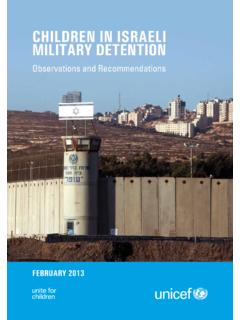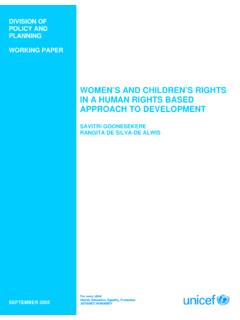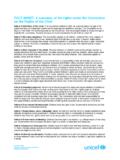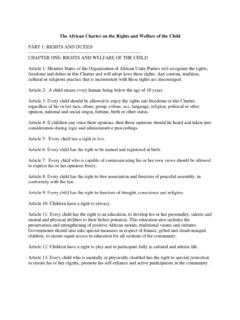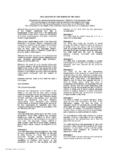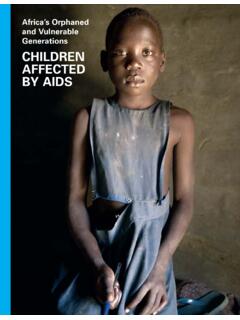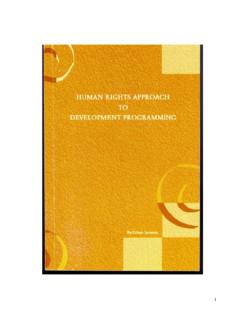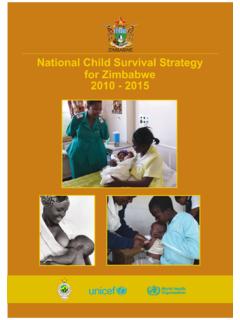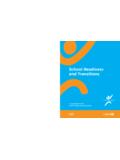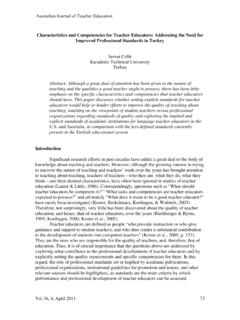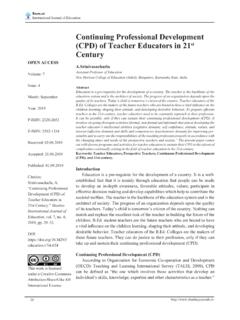Transcription of Comprehensive Life Skills Framework - UNICEF
1 IComprehensive life Skills Framework Rights based and life cycle approach to building Skills for empowermentComprehensive life Skills Framework Rights based and life cycle approach to building Skills for empowermentComprehensive life Skills Framework2 The development of the Comprehensive life Skills Framework was led by UNICEF India with contributions to its development from National Council of Education Research and Training, Ambedkar University, Room to Read, Care India, Save the Children, Aga Khan Development organization, Enfold, Central Institute of Education, Nirantar, Learning Link Foundation, Tata Trust, Breakthrough and Young Lives, UNESCO, World BankAcknowledgements3 Investing in the world s billion adolescents aged 10-19 could break entrenched cycles of poverty and inequity.
2 India is home to more than 253 million adolescents. Caste, gender, poverty and location continue to pose barriers for many young people to realize their full is an increasingly stronger focus on developing Comprehensive life Skills in children and young people in India so that they are empowered and are responsible citizens of society. In addition to academic, vocational, and technical Skills , the focus is now on building those Skills or competencies that are needed to meet the demands of the increasingly vulnerable situations of our diverse India s complex and diverse scenario, life Skills have inherent attributes to elicit empowerment and active participation from children and adolescents, helping them recognize their power and potential and take positive action to promote social inclusion, harmony and promote equal opportunities for is evidence that psychosocial competencies.
3 Including resilience, personal agency and self-confidence, can help a person move out of poverty and life Skills can enable young people to protect themselves from a multitude of vulnerable social environments and risk-taking , young people must be provided the opportunity to gain knowledge and develop relevant values, attitudes and Skills that will enable them to participate fully in their society and to continue learning. Developing life Skills amongst them is critical to addressing the Sustainable Development indicates a positive correlation between life Skills and increased attendance levels, enhanced classroom behaviour and improved academic achievement.
4 Given the positive correlation between life Skills and learning outcomes, the role of life Skills education within school curriculum and in the community becomes very the need for a broader and integrated approach to life Skills , a Comprehensive Framework to fashion policies and programmes that mainstream life Skills both in schools and in communities is critical. UNICEF India has consolidated the efforts by various agencies to bring together a Comprehensive Framework on life Skills that can be used to achieve a defined goal for individuals at specific age group across the life cycle.
5 The effort is to make this Framework consistent with global and national perspectives on the Skills and characteristics the children and youth of today need for the future, and to the national situations, with a specific focus on the marginalized communities. The Framework is primarily built on a strong Rights based and Empowerment approach, supporting children and adolescents in India to address vulnerabilities, lead informed lives, take decisions, and be responsible objective of this paper is to emphasize and delineate the need for life Skills in India while coming together on common definition of life Skills to be referenced across development sectors.
6 The paper further develops the theory of change and builds a conceptual Framework for life Skills that embed a set of Skills -clusters that are most relevant in the Indian context. It further affirms the importance of operationalizing life skill development as part of a continuum approach, as life Skills are life long and must be developed early and implemented through all stages of PrefaceComprehensive life Skills Framework4 The paper has been informed by a series of workshops and discussions led by the United Nations Children s Fund ( UNICEF ) India in collaboration with partners in the country, especially the National institutes, UN sister agencies, civil society organizations, academia, and independent target audiences for this paper are policy makers, teacher educators and other groups (governmental and non-governmental) that work with teachers, frontline workers and other functionaries in education, health, protection and nutrition; and organisations active in these sectors.
7 The focus of the paper is conceptual and theoretical based on which guidelines for implementation will be Defining life Skills 62. Need for life Skills in India 93. Theory of Change 144. life Skills in Indian context 185. life Skills Continuum 216. Conceptual Framework 257. Operationalization 35 References 39 ContentComprehensive life Skills Framework6 Defining life Skills1 UNICEF /UNI130598/VishwanathanComputer class Udaipur7 life Skills are a set of abilities, attitudes and socio-emotional competencies that enable individuals to learn, make informed decisions and exercise rights to lead a healthy and productive life and subsequently become agents of change.
8 life Skills promote mental well-being and competence in young people1 as they face the realities of life . These Skills support the development of foundational Skills such as literacy, numeracy, digital skills2 and can also be utilized in several areas, such as gender equality in education, environmental education, peace education or education for development, livelihood and income generation, and for positive health promotion among others. life Skills empower young people to take positive action to participate in their communities, engage in continuous learning, protect themselves and promote health and positive social relationships The term life Skills has been defined by various organizations in respect to the context that the term is applicable to their own programmatic focuses and strategies.
9 For example, the World Health Organization (WHO), considers life Skills in the specific context of health and defines them as abilities that support adaptive and positive behaviours that enable individuals to deal effectively with the demands and challenges of everyday life . On the same lines, however broader and applicable beyond health domain, the World Bank, through the lens of gender norms and human rights, defines life Skills as a set of social and behavioural Skills also referred to as soft or non-cognitive Skills that enable individuals to deal effectively with the demands of everyday s Middle East and Northern Africa (MENA)
10 Framework provides an all-encompassing definition3 that states development of life Skills as a process to be applied to various learning areas covering four dimensions: the cognitive, the individual, the social and the instrumental. life Skills are regarded as a cross cutting, interconnected and overlapping application of knowledge, values, attitudes and Skills which are integral to quality education and are universally applicable and contextual. Drawing from the above, life Skills are a set of abilities, attitudes and socio-emotional competencies that enable individuals to learn, make informed decisions and exercise rights to lead a healthy and productive life and subsequently become agents of change.
